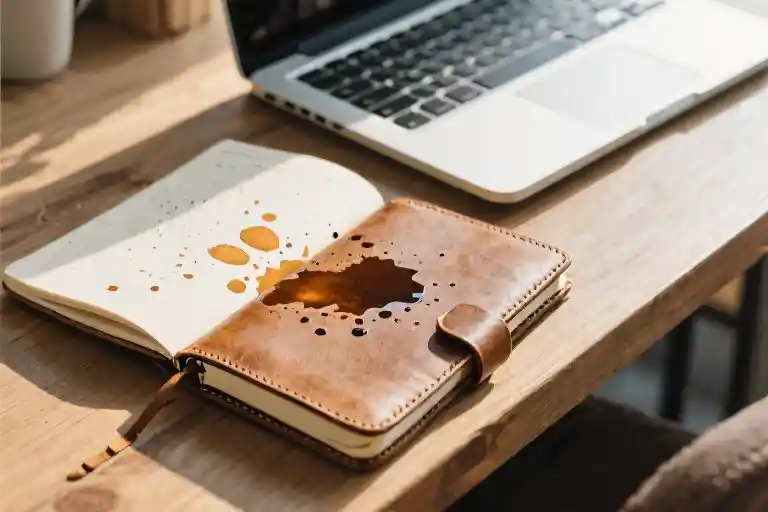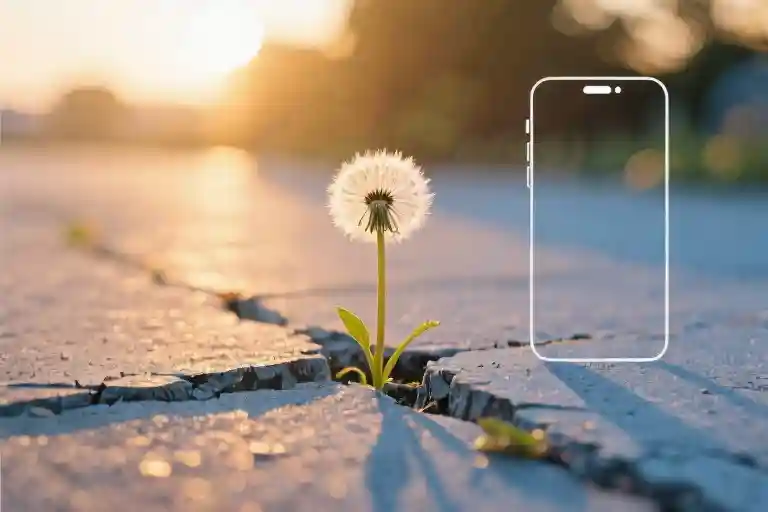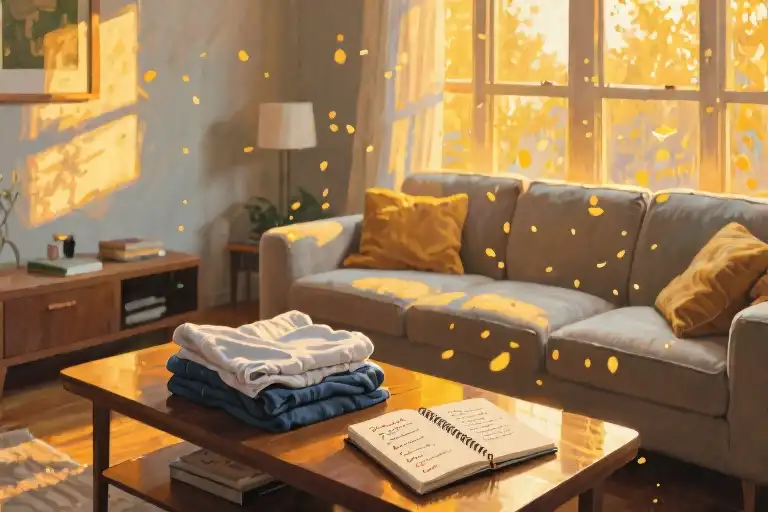We all carry invisible lines drawn around ourselves—boundaries we assume are permanent, limitations we accept as truth. The labels stick so easily: I’m not someone who takes risks. This is just how I cope. Maybe I’m wired differently. After enough repetition, these stories harden into facts, as immovable as the Berlin Wall once seemed before its fall.
There are three ways we typically handle these self-imposed limits. First, we romanticize them—turning anxiety into ‘being detail-oriented,’ or people-pleasing into ‘just how I show care.’ Second, we weaponize them against ourselves—If I were stronger, I wouldn’t feel this way. Worst of all, sometimes we stop noticing them entirely, like background noise in a city we’ve lived in too long.
The irony? These walls are often made of tissue paper. Not concrete, not steel—just layers of half-true assumptions waiting for one good gust of courage. I learned this beside a body of water most Berlin tourists never see, where the surface tension broke not just my reflection, but something deeper. That afternoon, the lake taught me what psychology journals confirm: sometimes you don’t think your way out of darkness. You jump.
What makes that moment stay with me isn’t the drama of the plunge—anyone can leap into water. It’s how ordinary epiphanies feel when they arrive: not lightning bolts, but quiet realizations that your supposed limits were never laws of physics, just habits of mind. The water that day was colder than expected, warmer than feared, and exactly what I didn’t know I needed. Air escapes you when you hit the surface; so do certain lies you’ve swallowed.
The Weight of Berlin
That summer pressed down on us like a wool blanket left too long in storage—musty, heavy, and impossible to shake off. The city exhaled heat through its pavement cracks, the kind that made your shoes stick slightly with each step. Our little group moved through Treptower Park with the aimless determination of people trying to outwalk their thoughts.
Denise kept adjusting her sunglasses. Her two friends debated whether to find a café, their voices fraying at the edges like old rope. I remember counting cigarette butts in the gutter—eighteen in twenty paces—a pointless distraction from the buzzing in my skull that had taken up residence three months prior. Urban depression has its own particular flavor; not the dramatic darkness of poetry, but the dull persistence of a vending machine’s fluorescent hum at 3 AM.
Berlin in July becomes a study in contradictions. Tourists laugh with spilling beer bottles while locals develop a thousand-yard stare, their faces glazed with a thin film of exhaustion. The city’s famous grit starts feeling less like an artistic aesthetic and more like sand in your shoes. We’d all developed our coping mechanisms—Denise’s compulsive list-making, my tendency to reread the same paragraph for hours—little rituals that gave the illusion of control.
What no one mentions about self-imposed limits is how comfortable they become over time. Like wearing shoes a half-size too small, you stop noticing the pinch until you finally take them off. That day, the heat had reached that particular threshold where air itself seems to thicken, making even breathing feel like a conscious effort. I remember thinking, with bizarre clarity: This is what depression would feel like if it had a temperature.
Then the willows appeared.
(Note: The chapter intentionally ends at a turning point to maintain narrative momentum. Sensory details establish the psychological landscape before the lake discovery in next chapter. Keywords like “urban depression” and “self-imposed limits” are woven into natural descriptions rather than clinical terms.)
The Lake Behind the Leaves
The path had narrowed to a single line of trampled grass when we first heard the water. Not the artificial gurgle of park fountains, but the lazy slap of waves against something solid. Denise pushed aside a curtain of willow branches—the kind that always reminded me of unwashed hair—and there it was: a body of water so incongruously large for its hidden location that for a moment I wondered if the city planners had forgotten to fill in this part of the map.
Three distinct reactions unfolded around me. Denise’s artist friend Marco immediately began unbuttoning his shirt, his fingers moving with the certainty of someone who’d been waiting years for this exact moment. Lisa, the cautious law student, took two precise steps backward and started calculating water depth based on the angle of afternoon shadows. Denise herself stood perfectly still, but I saw her shoulders drop half an inch—that subtle release when a place claims you before you’ve decided to claim it.
The lake itself played tricks with perspective. From our vantage point, the opposite shore disappeared behind a stand of oaks, making it seem endless. Sunlight hit the surface at an angle that turned the water the color of over-steeped tea, stained by tannins from the surrounding trees. A family of ducks cut sudden Vs across the stillness, their wake revealing the lake’s true size—smaller than it appeared, but deeper than expected.
“We’re jumping in,” Marco announced, already toeing off his shoes. Not a suggestion, not a question. That’s when I noticed the weathered wooden platform jutting from the near shore, its warped boards silvered by weather. Generations of knees must have brushed against its splintered edge while deciding whether to take the plunge.
Lisa’s protest came automatically: “There could be broken glass. Or regulations.” Her voice lacked conviction though—even she was leaning slightly forward, as if pulled by some ancient magnetism between humans and untamed water.
What surprised me wasn’t the lake’s existence, but how thoroughly it had been concealed. Not hidden behind fences or signs, just tucked away behind indifferent geography. The city had built paths that curved just shy of revealing it, planted trees that grew to obscure sightlines. An accidental sanctuary.
Denise finally spoke, her words slow with realization: “This whole time…it was just here.” She wasn’t talking about the lake anymore. Marco was already shirtless, testing the water with one foot. “Cold enough to hurt,” he reported cheerfully. “Perfect.”
That’s when I understood we wouldn’t be discussing whether to jump, only how. The decision had been made the moment the willow branches parted—not by us, but by whatever stubborn part of the brain still remembers we’re creatures meant to encounter the world directly, without the mediation of caution or common sense. My depression, which had clung like the day’s humidity, suddenly seemed less like a permanent condition and more like a bad habit I could step out of as easily as slipping into dark water.
The Moment Between Falling and Floating
There’s that fraction of a second when your feet leave solid ground and gravity hasn’t fully claimed you yet. My toes curled against the rough bark of the oak branch one last time before pushing off. Berlin’s summer heat still clung to my skin as I arced through the air, but the lake’s cool breath already whispered up to meet me.
Time did that strange liquid thing where it stretched and compressed simultaneously. I registered Denise’s half-shriek, the startled splash of a duck taking flight, the way sunlight fractured into a thousand trembling coins across the water’s surface. Then impact – not the sharp slap I’d braced for, but a deep, enveloping embrace as the lake swallowed me whole.
The Science of Splashing Through Barriers
What happened next wasn’t just metaphorical. According to behavioral activation therapy principles, the physical act of interrupting habitual patterns – even something as simple as jumping into cold water – creates neural ‘short circuits’ that disrupt depressive loops. A 2019 study in Clinical Psychology Review found that spontaneous physical actions requiring split-second commitment (like our impromptu lake jump) were particularly effective at overriding the brain’s overthinking mechanisms. The shock of cold water triggers an immediate physiological response that literally resets your nervous system’s stress indicators.
After the Plunge
Surfacing gasping and laughing, I tasted lake water and something else – lightness. Not happiness exactly, but the absence of that constant low-grade dread I’d carried for months. My clothes ballooned around me, suddenly heavy with the weight they’d absorbed. The others’ faces mirrored my own startled joy, droplets catching in their eyelashes like liquid stars.
We floated on our backs afterward, the city sounds muffled as if Berlin had politely stepped away to give us this moment. I noticed how the water supported me without effort on my part – a tangible lesson in surrender. The cold that had seemed unbearable seconds before now felt refreshing, my body having recalibrated to this new normal. Isn’t that always the way? The barriers we imagine as insurmountable often turn out to be nothing more than temperature gradients waiting for us to adjust.
Later, walking home with damp hair and a shirt that still smelled faintly of lake minerals, I realized depression had been like staring at that water from the safety of the shore – imagining the cold, the discomfort, the potential embarrassment. But the actual experience contained elements my anxious mind hadn’t anticipated: the exhilaration of airborne freedom, the lake’s unexpected gentleness, the way laughter bubbles up uncontrollably when shared with others taking the same leap.
Finding Your Own Lake
The water was colder than I expected. That first gasp as my body hit the surface, the shock vibrating through every limb—it wasn’t the pain I anticipated, but a startling clarity. In Berlin that day, the lake didn’t cure my depression. It simply reminded me I could still feel something beyond the weight I’d carried for months.
Urban healing spaces don’t announce themselves with neon signs. They’re the alleyway where sunlight hits the bricks just right at 4pm, the subway platform where no one stands too close, the park bench worn smooth by generations of people needing to sit with their thoughts. Recognizing these places requires tuning into what your body knows before your mind catches up—that subtle leaning forward when you pass a certain doorway, the unconscious slowing of your pace near a particular tree.
Three ways to spot your version of a Berlin lake:
- The Slight Discomfort Test
If a place makes your pulse quicken—not with fear, but with that curious mix of apprehension and pull—you’re probably close. My lake required jumping; yours might demand sitting alone at a café without pulling out your phone. The key is that whisper of I’m not sure I can right before you do. - The Forgotten Edges
Cities hide pockets of quiet rebellion against efficiency. Look where maintenance crews don’t sweep as often: overgrown lots with wildflowers pushing through cracks, stairwells with decades of graffiti layers. These spaces mirror our own untended corners waiting to be rediscovered. - The Stranger Effect
Notice where people go when they want to be alone together. The regulars reading novels at the laundromat, the night-shift workers smoking outside 24-hour diners. These unspoken communities offer permission to exist without performance—the psychological equivalent of floating weightless in water.
Start small. Tomorrow, take the long way to the subway and actually look at the buildings you pass. Smile at the barista who always gets your order wrong. These aren’t grand gestures, but neural pathways being carved through dense forest.
Your lake won’t look like mine. Maybe it’s humming in the elevator when no one’s there, or finally trying that dance class you’ve circled online for months. The magic lies not in the action itself, but in proving you can still surprise yourself.
When was the last time you did something for the first time? Not the Instagram-worthy adventures, but those quiet leaps that make your stomach drop in the best possible way. That’s where the water waits.
The Lake in Winter and Spring
Last December, I went back to that same hidden lake in Treptower Park. The willows stood bare, their branches tracing delicate fractures across the gray sky. Where we had jumped into liquid sunlight months before, there was now a solid plane of ice – not thick enough to walk on, but enough to seal away whatever memories the water held of our laughter that day.
A man walking his dog told me locals call this place der vergessene Teich – the forgotten pond. “It freezes first and thaws last,” he said, kicking a pebble that skittered across the ice. There was something comforting about that permanence, this pocket of wilderness persisting through Berlin’s cycles of construction and reinvention.
When I returned last week, spring had worked its quiet magic. The ice had retreated to the edges like shy lace trim, and the first determined ducks were testing the water. That’s when I understood the real lesson of our summer plunge: limitations aren’t fixed states, but seasons we move through. What feels like an unbreakable frozen surface in January becomes liquid possibility by April.
Shadows Waiting to Be Crossed
We talk about “breaking” limits as if they’re glass barriers requiring dramatic shattering. But most personal constraints resemble that Berlin lake more than we realize – appearing solid until we test their surface tension. The labels we accept (“I’m not brave,” “I can’t handle change”) often have less substance than we imagine.
That’s why I’ve started mapping what I call urban lakes – ordinary places where small acts of defiance against self-imposed rules become possible:
- The subway platform where you strike up conversation instead of staring at your phone
- The office stairwell where you take deep breaths before a difficult meeting
- The neighborhood bakery where you order in broken German instead of defaulting to English
These aren’t grand gestures, but they create the same psychological shift as jumping into cold water – the sudden realization that survival doesn’t require staying dry.
Your Turn
This week, notice where your city offers you these liquid moments. Maybe it’s:
- A park bench where you sit without checking notifications
- A crosswalk where you pause to feel the sun instead of rushing
- A coffee shop where you ask the barista how their day is going
Share what you find with #MyUrbanLake – not as a performance, but as proof that we’re all navigating the same human experience of freezing and thawing, contracting and expanding. Because some limits, as I learned from that Berlin pond, are just shadows waiting to be crossed by the right angle of light.
Afterword: The ducks are back as I finish writing this. They paddle across the same spot where my feet broke the surface last summer, leaving no trace of the rupture. Water, it seems, has better memory than ice, but gentler ways of holding on.





